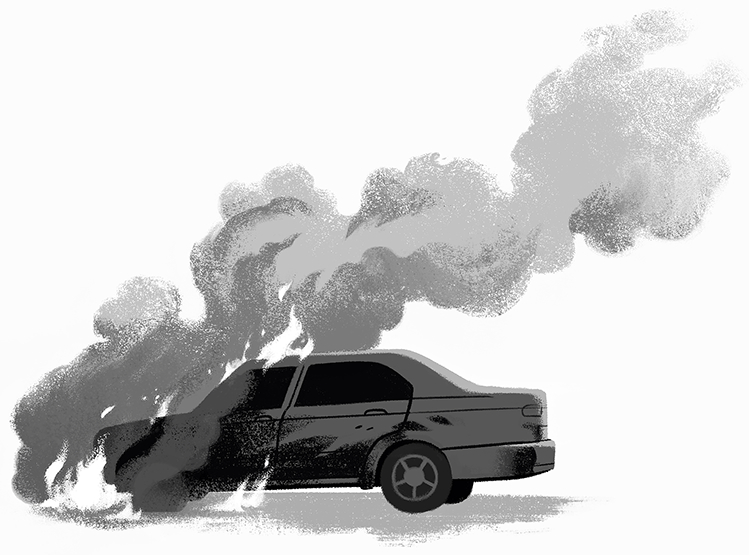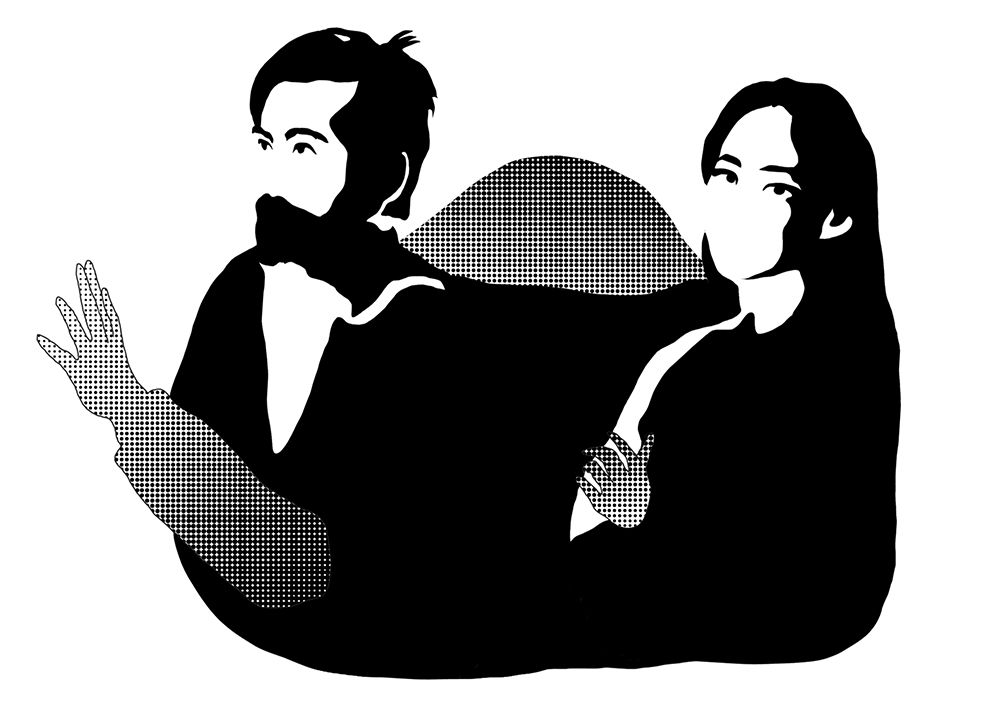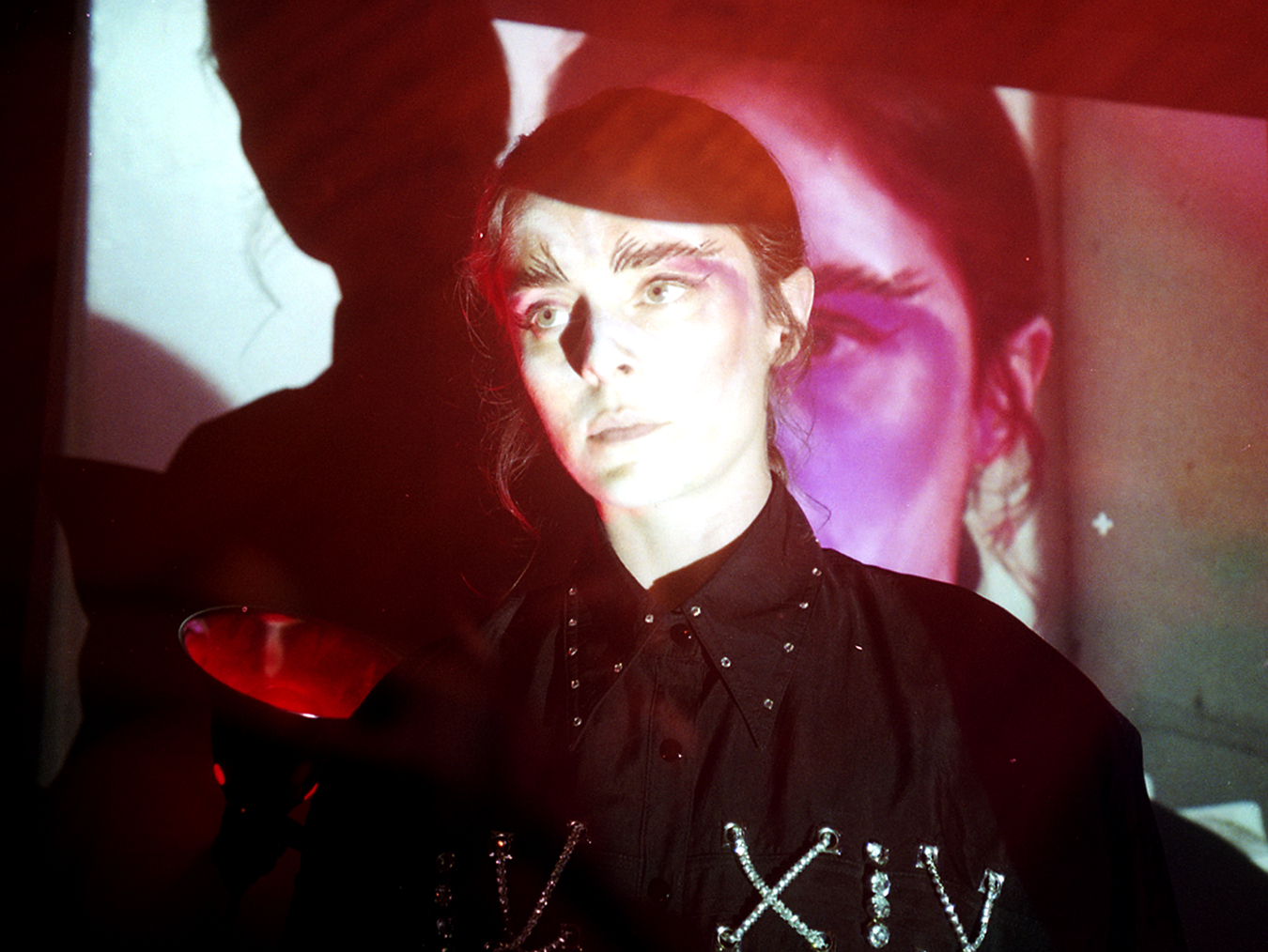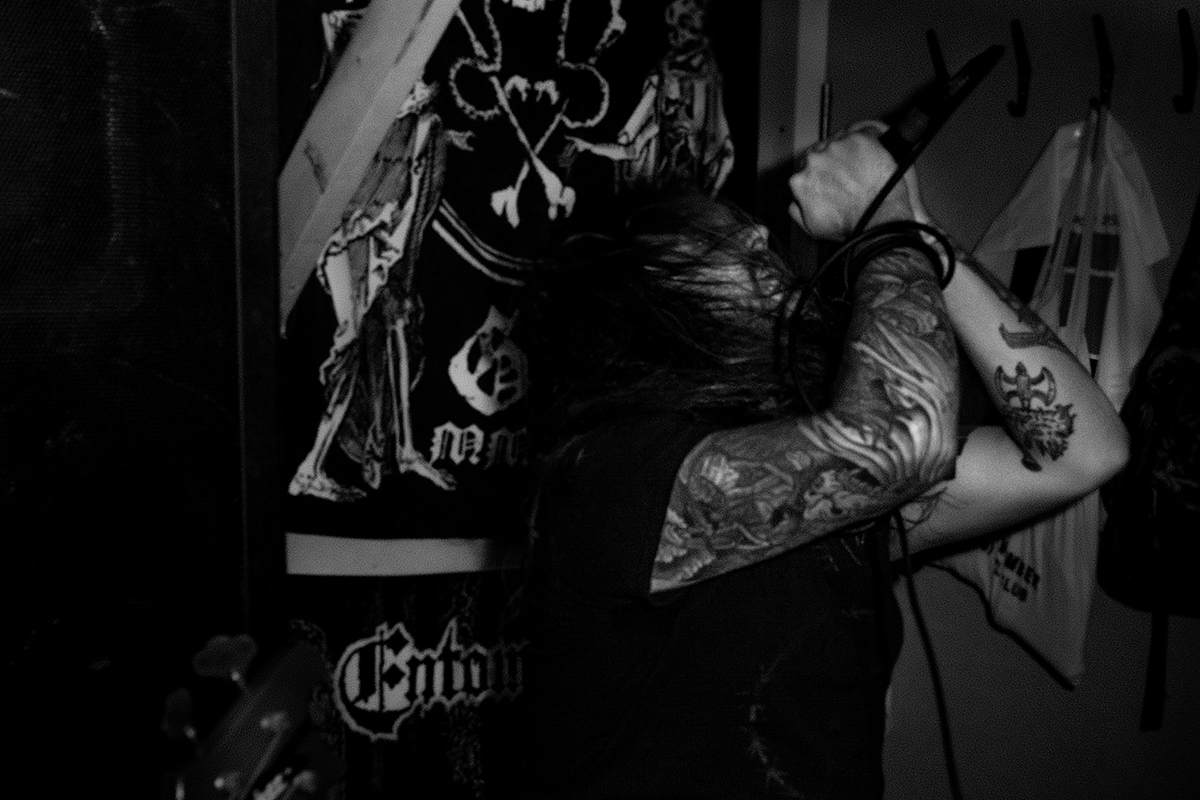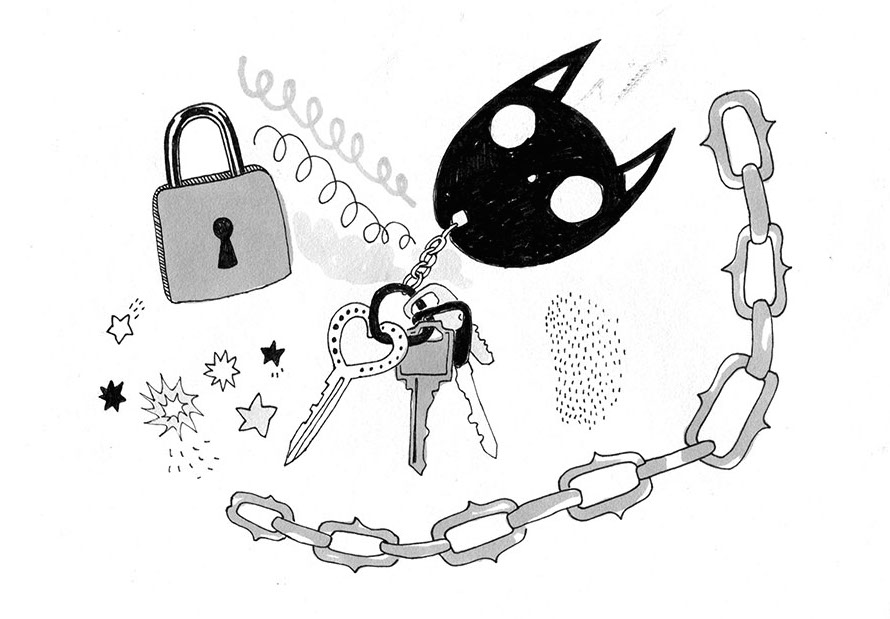I first met Alex in Vancouver of 2010. We were working on an exhibition for artist, Howie Tsui who used to play in the band The Acorn. There weren’t a lot of Asian people in the Canadian music landscape at the time and so when I found out he was a musician I immediately wanted to strike up a friendship. Our relationship grew out of the many conversations we shared regarding issues of race, belonging, and diaspora. We have managed to meet up in various places in the world at various times, and maintain a regular correspondence. What follows is an excerpt of our most recent conversation, occurring in June of 2016. Alex is currently in Copenhagen, and I am in Vancouver.
AYL: Buddy! Where in the world are you right now and what are you doing? Tell me more about your new incarnation as Last Lizard. How is your new project shaping up?
AZH: Yoooooooooo.
Things are more or less more chill now, just searching for something else out there. I don’t even know what it is I’m looking for but I’m looking for it. In Lisbon at the moment training on saxophone with David Maranha and Gabriel Ferrandini. Last Lizard is on hold for now, been playing under my real name for a change.
AYL: The last time I saw you was in Lisbon right after you had put out Stateless. I remember waiting at the Berlin airport with my partner for our flight to Portugal. You had just posted on your website that Dirty Beaches was done. I was shocked. The new record was fucking beautiful and heartfelt and I was really excited for where you would go next.
I want to ask you — because I went through something similar when I stopped doing In Medias Res and started Holy Hum: Does it feel like you are starting over? Or is this a continuation? Is there something that threads all of your previous work together with what you’re doing now?
AZH: In a way, it’s starting over, and in another way it’s a continuation. What we do and how we live our lives are forever intertwined. It reached a boiling point, so to speak. It had to end, because the polarities were just cancelling each other out, erasing each other. Whether it was the polarity in how I express myself musically or personally, it was reaching a dead end, and I had to move on. It was a necessity in order to survive and grow. Growing pains at age 35.
I know you were born in Canada, whereas I was born in Taiwan. Although it’s annoying when people question my authenticity as a North American (being raised in both the U.S. and Canada), I also don’t feel any specific loyalty towards this identity. I feel extremely privileged to have been raised here, but I loathe nationalism. Celebrating culture is great, but celebrating segregation (U.S. border patrol propaganda against Muslims and Mexicans), labeling people and determining who is qualified to be “one of us” is truly disgusting. It happens all over the world in every corner. Nationalism can breed blind hatred, it’s a very powerful tool employed by the government tampering with how a nation feels and how the media distorts and demonize certain countries, preparing and grooming our political attitudes. Not to mention the attacks of Muslims in the U.S., but in Ottawa, Ontario there have been attacks on mosques being burned down this year after the Paris attacks. Makes me think about if China goes to war with the U.S., would people throw stones into my window? Would people jump me while I’m walking on the street or verbally abuse me with racial slurs? In your opinion, what does it mean to be Canadian? People can’t even tell the difference between Muslims and Sikhs, I doubt they will be able to tell the difference between Taiwanese / Chinese / Korean / Japanese for that matter. What kind of psychology does it bring upon Canadian minorities when our citizenship / identity can be revoked/provoked and challenged at the whim of the country? (Bill C-24, for instance, or the patriot act in the U.S..)
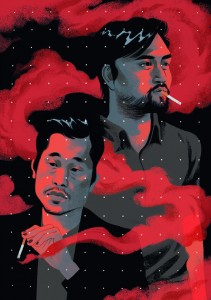
AYL: I’ve got to think about my father when he emigrated to Winnipeg in the ‘70s. He was like an alien in that city. He was like one of two Korean dudes in that town and everyone made him aware of that. When I became old enough to drink, instead of wishing me a good time at the bar my father would show me how to break a beer bottle over the counter. He said that people were going to want to fuck with me and that you shouldn’t get yourself cornered. And that even on the bus ride home people are going to want to follow me so I should always get off a stop early and walk the rest of the way. All because of the colour of my skin.
I think to be Canadian you’ve got to know and remember where you came from. And I feel like that’s what I’m in the process of doing. Because we are bound to repeat our past if we don’t remember it and acknowledge it. Being Canadian is to remember the Residential Schools, The Chinese Head Tax, Japanese Internment, the list goes on. I don’t think we can move on unless we address these things. You’ve got to recognize it and name it in order to heal and move forward.
Growing up I wasn’t yellow enough to hang with the Asian kids and I tried to be whiter than most white kids and that alienated my parents and ultimately myself. After my father passed away in 2011 I really started to look for a sense of identity through my culture. It really gave me something to unearth and I felt like it brought me closer to identifying with my parents. We don’t get to choose our nationality / ethnicity and citizenship can be given and taken away now. So where does that leave us with our sense of place and our sense of where we belong?
AZH: I was with my mom and two sisters throughout the Etobicoke years. I didn’t know the alphabet nor how to speak a word of English when I first arrived (age 8). And thinking back it was the closest experience to being mute and deaf. Everyday felt like a foreign movie with no subtitles. There were these two boys that always pushed me from behind really hard and when I turned around they would shove me again and shout at me. But because I couldn’t understand what they were saying I thought it was some kind of game. So I would push back and laugh as loud as I could, imitating them. Later on the words came together, bit by bit: “Hey chinky chink eyes, why don’t you go back to your own country?” I had to go ask my mom what “chink” meant when I got home.
I don’t think my identity really had time to form because of the constant moving, and as a result it remained passive. It was on autopilot and I would adopt accents and mannerisms and expressions so I would not stick out like a sore thumb, and hope that I could just blend in the background with everybody else.
AYL: The things that I struggle with as an adult now are more nuanced but I am handling it like an angsty teenager. I’m fighting these subtle stereotypes that Asians are apolitical, or apathetic and that we’re the model immigrant citizens because we keep to ourselves and do well with money. None of that shit applies to me. Ha!
You do a lot more traveling than I do and you have told me a few stories about getting “ching-chonged” while on tour. What’s your impression and experience being yellow skinned in N. America as opposed to Europe. What is the difference between touring N. America and Europe?
AZH: Let’s just say there are idiots everywhere. This reality is real for everyone. It might not be as extreme as the police shootings in the U.S.A., but it is consistent harassment. It occurs as often as women getting harassed or cat-called. It can be shocking to people but it exists. And it happens. I’m half awake now in Copenhagen so I’m gonna be quick. Talking about this makes me upset.
The best example was very recent; three weeks ago in Lisbon I was on my way to the airport shuttle to pick up my girl Niki, and I had brought some flowers with me to give to her. A Portuguese lady and an Australian tourist lady I passed said, “no thanks” with their hand sticking out. I replied, “excuse me?” And they answered: “I don’t want to buy flowers, thanks.”
Outraged, I told them it was for my girl, and that I was on my way to the airport to pick her up. They were extremely embarrassed, but this is just one example. When minorities cease to be human beings to them, and when they see my face, they just assume I’m some Asian guy on the street trying to sell them flowers. They can’t even fathom for a second that maybe this person has a life and the flowers are for someone he cares about.
AYL: You’re right, it’s the same narrative for a lot of women and men of colour and also for the LGBT community. But I think these stories are important to tell because in the end it’s going to bring the people we care about and the people who care about us some type of understanding. A very basic but important level of communication is done by telling our stories.
Besides the one Asian dude from the Smashing Pumpkins I don’t have anyone who physically looks like me and who is doing the same thing as I’m doing — other than you dude.
Love,
Andrew
AZH: It’s the same for me Andrew. Sometimes I feel like we’ve almost achieved it as a society, as a whole — I’m with my friends and everything is all good until some random drunk bastard says something about me and my “kind” are invading his country stealing jobs. This is a reality that Donald Trump’s America is representing. They are not new problems, they’ve always existed. People like Trump simply make some people bold enough to publicly engage in this racist rhetoric.
It is important to talk about this and make it public. I gotta run Andrew, was good talking to you bud. Hope all is good back in Vancouver.
Love,
Alex


